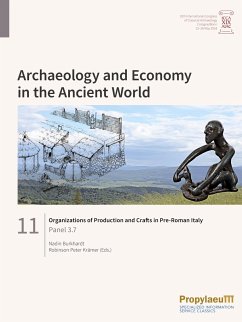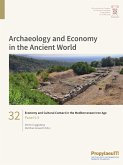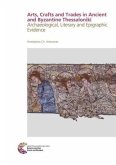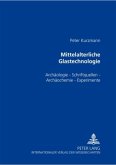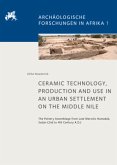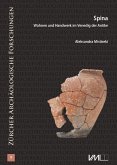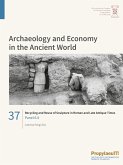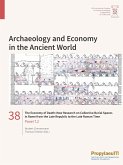While economic approaches are becoming generally more important and even mainstream topics, this is not necessarily the case for research into Pre-Roman Italy, defined as the area of the Italian Peninsula, Sicily and Sardinia during the Iron Age. Until recently, there was almost no research into Pre-Roman Italy focused on economic studies, and the existing research has been mostly dedicated to very specific contexts: (1) specialization of crafts and production in the context of urbanization processes; (2) specific production areas, such as agriculture, metal processing, and salt production; (3) studies focusing on Greek Colonies and Greek Colonial encounters with indigenous populations; (4) analyses of consumption patterns, mainly in the case of Greek pottery consumption. Recent excavations and investigations devoted to the study ofworkshop structures, such as those at Gabii, Pithekoussai, Kroton, Lokroi Epizephyrioi, Naxos, Selinunt and Kyme / Cumae, have provided a range of new data that is stimulating a valuable and highly constructive discussion on the organization of production and crafts in Pre-Roman Italy. Against this background, four members of the study group 'Etruscans and Italic Cultures' from the 'German Association of Archaeologists' (Arbeitsgemeinschaft Etrusker und Italiker des DArV e.V.) formed a panel to discuss the economic aspects of Pre-Roman Italy on the basis of their ongoing research projects: all of these focus on the field of production and crafts. The aim is to contribute to an intensified debate on geographical, chronological and functional patterns in the organization of crafts and productions by discussing current case studies andmethods. DE

